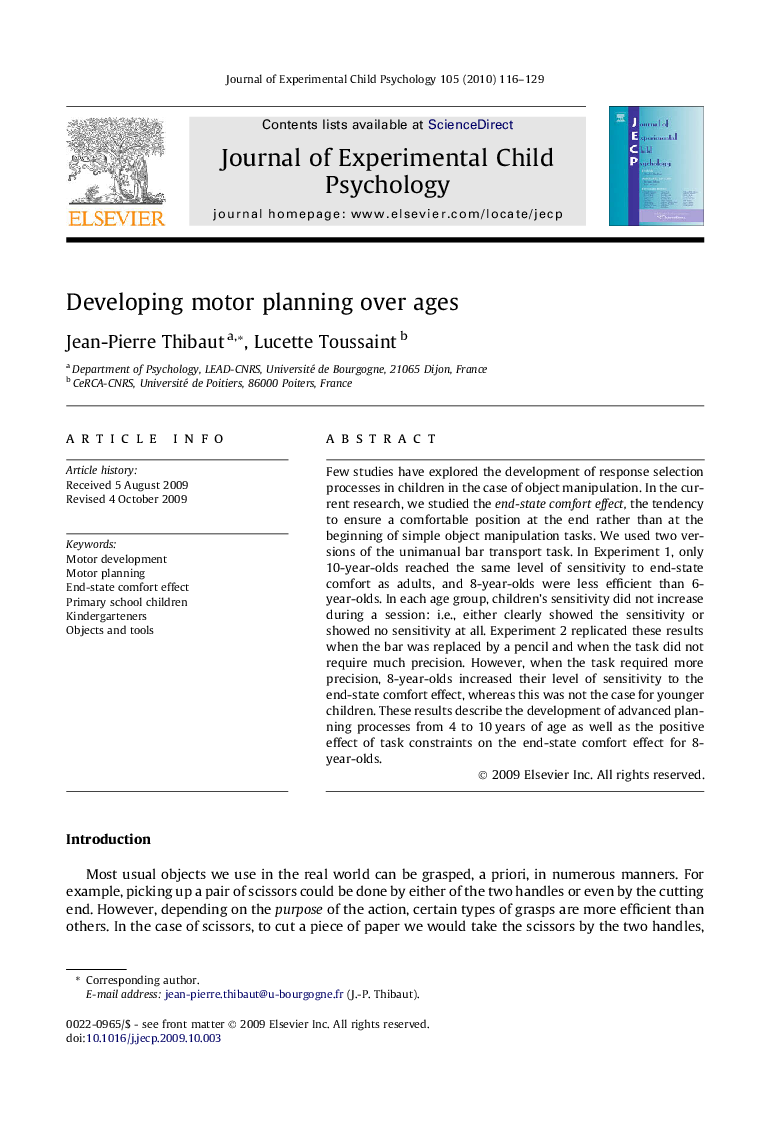| Article ID | Journal | Published Year | Pages | File Type |
|---|---|---|---|---|
| 918557 | Journal of Experimental Child Psychology | 2010 | 14 Pages |
Few studies have explored the development of response selection processes in children in the case of object manipulation. In the current research, we studied the end-state comfort effect, the tendency to ensure a comfortable position at the end rather than at the beginning of simple object manipulation tasks. We used two versions of the unimanual bar transport task. In Experiment 1, only 10-year-olds reached the same level of sensitivity to end-state comfort as adults, and 8-year-olds were less efficient than 6-year-olds. In each age group, children’s sensitivity did not increase during a session: i.e., either clearly showed the sensitivity or showed no sensitivity at all. Experiment 2 replicated these results when the bar was replaced by a pencil and when the task did not require much precision. However, when the task required more precision, 8-year-olds increased their level of sensitivity to the end-state comfort effect, whereas this was not the case for younger children. These results describe the development of advanced planning processes from 4 to 10 years of age as well as the positive effect of task constraints on the end-state comfort effect for 8-year-olds.
